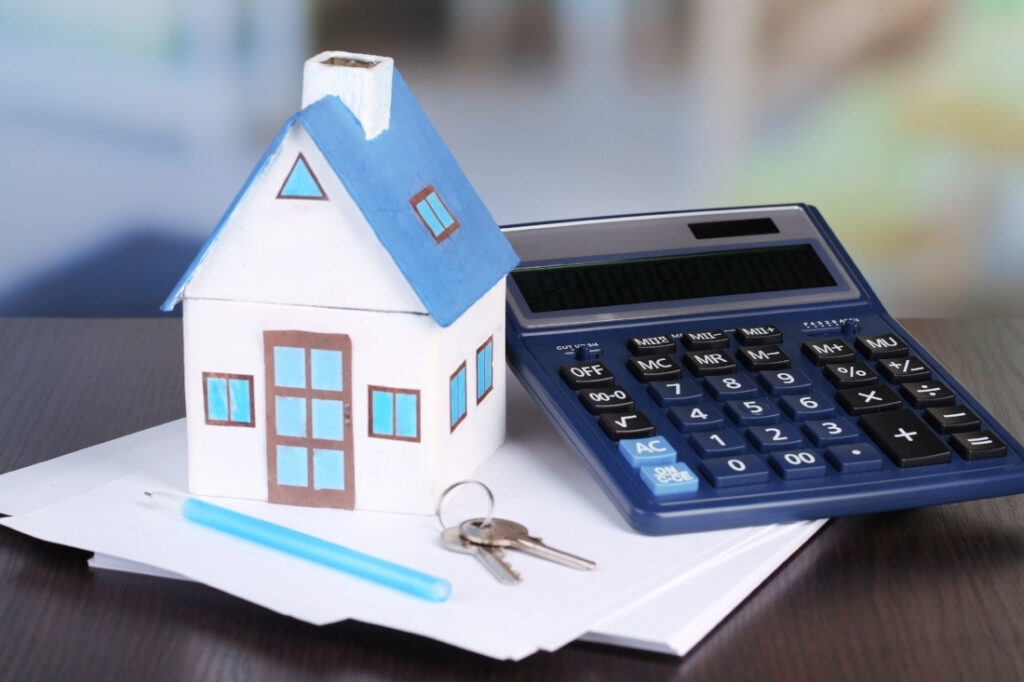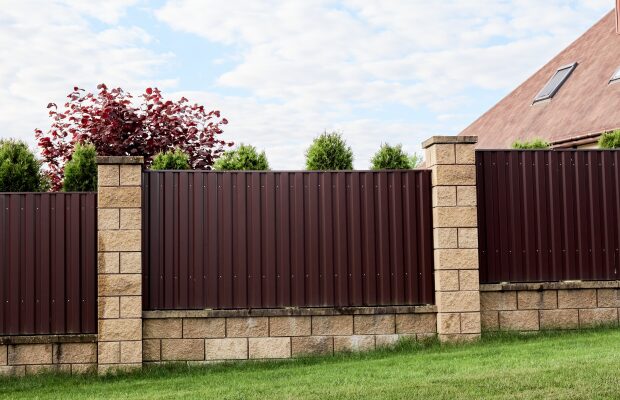While your biggest expense when moving home will always be your property’s purchase price, there are a range of other important fees you’ll need to consider.
“Moving can be expensive and if you’ve never done it before, some costs can come as a surprise,” says Parkers Managing Director Rob Smith.
“With so many things to juggle when changing homes, it’s vital to plan ahead and budget for anything that may crop up.
“The last thing you want is an unexpected bill that you can’t afford to pay. Stamp Duty, Land Registry fees and legal fees are some key expenses you can expect, but it’s important to also do your own research as every move is different.
“Fortunately, there are lots of experts throughout the process to help guide you during your home moving journey, so never hesitate to speak to your estate agent, solicitor or mortgage advisor if you have any questions or concerns.”
This guide reveals the six most important fees you’ll need to think about when moving house.
1. Stamp duty
Stamp duty is often the biggest fee you’ll pay when moving home.
But what you’ll pay, or if you’ll pay anything at all, depends on your circumstances and how much you’re paying for your property.
Stamp duty for existing or previous homeowners
If you currently own a property or have in the past, you’ll pay stamp duty on the amount of your new property’s purchase price above £250,000.
|
Portion of purchase price |
Stamp duty rate |
|
£0 – £250,000 |
0% |
|
£250,001 – £925,000 |
5% |
|
£925,001 – £1.5m |
10% |
|
£1.5m + |
12% |
If you’re buying a second home or a buy-to-let property, you’ll have to pay an additional 3% surcharge on top of these stamp duty rates.
Stamp duty for first-time buyers
If you’re buying a property for the first time, you’ll pay no stamp duty on the first £425,000 of your property’s purchase price.
|
Portion of purchase price |
Stamp duty rate |
|
£0 – £425,000 |
0% |
|
£425,001 – £625,000 |
5% |
If you’re paying more than £425,000 for your home, you’ll pay the standard rates of stamp duty.
Who pays stamp duty?
Only buyers pay stamp duty – the property tax doesn’t apply to sellers.
When do you need to pay stamp duty?
Stamp duty is due no more than 14 days after your property purchase completes.
Your solicitor or conveyancer will usually pay your stamp duty bill once you have completed your purchase.
2. Mortgage fees
If you’re buying a home with a mortgage, there are several fees you’ll need to factor in.
Mortgage fees when buying a house include:
Arrangement fee
Your lender may charge an arrangement fee to cover their administration costs when arranging your mortgage.
Arrangement fees are sometimes called booking fees, product fees or application fees, but are all essentially the same thing.
The highest arrangement fees are usually attached to mortgages with the best interest rates, so expect to pay anywhere between £0 and £2,500.
Mortgage valuation fee
Your mortgage lender will carry out a valuation of the property you’re buying to establish whether it’s worth what you’re paying for it.
Valuation fees are often around £300 but can be more depending on the property you’re buying.
How are mortgage fees paid?
Your mortgage arrangement fee can either be paid up front or added to your mortgage loan.
If you decide to add the fee to your loan, be aware this can affect your borrowing potential or push you into a higher loan-to-value bracket resulting in a higher interest rate.
Adding your arrangement fee to your mortgage also means you’ll pay interest on the amount over the term of your mortgage.
Mortgage valuation fees, meanwhile, are almost always payable up front.
Mortgage broker fees
Using a broker can be a great way to access a wider range of potential lenders and mortgage products.
However, using a broker does sometimes come with a fee.
Ask your broker if they charge a fee and if it’s payable regardless of whether you proceed with a mortgage through them.
Many mortgage brokers are paid through lender commission, meaning you won’t have to pay a fee.
What are average mortgage broker fees?
Mortgage broker fees vary and are charged in several different ways, including:
- By an hourly rate
- A fixed charge
- A percentage of your mortgage
If your broker charges by the hour, be aware that this fee could increase if there are any issues with your application and your broker needs more time.
A broker’s fixed charge may vary but expect to pay between £300 and £700.
If your broker charges a percentage fee related to your mortgage, you should expect this to be somewhere between 0.35% and 1% of your mortgage loan.
That means if your mortgage is worth £200,000, you could pay anywhere between £700 and £2,000.
3. Survey fee
If you decide to have a survey on the property you’re buying, this will come with a fee.
You don’t have to have a survey carried out, but having one will either confirm the property you’re buying is in good condition or explain some of the issues you may be facing if you go ahead.
Although surveys aren’t mandatory, they are highly recommended – particularly if you’re buying an older property.
How much are survey fees when buying a house?
Survey fees vary depending on:
- The type of survey you choose
- The type of property you’re buying
- The size of the property
- The location of the property
- The value of the property
There are three Royal Institution of Chartered Surveyors (RICS) surveys available:
- RICS Home Survey – Level 1
- RICS Home Survey – Level 2
- RICS Home Survey – Level 3
These range from a basic survey suitable for newer properties (Level 1), to a full structural survey recommended for older or period homes (Level 3).
Larger properties and those with a higher purchase price usually command a higher survey fee.
|
Type of survey |
Average cost |
|
RICS Level 1 |
£500 – £900 |
|
RICS Level 2 |
£600 – £1,100 |
|
RICS Level 3 |
£700 – £1,500 |
4. Solicitor fees
When buying a property, you’ll need a solicitor or property conveyancer to carry out the legal work for you.
Your solicitor or conveyancer will usually charge a fee for their time spent getting your purchase to completion.
What is the average cost of solicitor fees when buying a house?
Solicitor and conveyancer costs vary, but you should expect to pay between £800 and £1,500 as a main fee, depending on:
- Whether you’re buying with a mortgage or cash
- Whether the property is freehold or leasehold
Leasehold properties are often more complicated and require more legal work and this can push up conveyancing fees.
Buying with cash rather than a mortgage generally requires less legal work, meaning conveyancing fees are often cheaper.
Additional fees, known as disbursements, are often payable and can include:
|
Disbursement |
Average cost |
|
Bankruptcy search |
£4 |
|
Local authority searches |
£300 |
|
Environmental search |
£30 |
|
Drainage search |
£30 |
|
Other local searches |
£40 |
|
Money transfer fee |
£30 |
|
Identity check |
£15 |
5. Home insurance
The cost of insurance is another fee you’ll need to consider when buying a home.
While some insurance policies are optional, your mortgage lender will almost certainly insist that you have a buildings insurance policy in place as a condition of their loan.
Buildings insurance protects you against damage to your home’s structure from flooding, fire, or storms and your policy will need to cover the cost of a rebuild should the property be destroyed.
Your lender will need your buildings insurance policy to be in place from the date you exchange contracts with your seller, as this is the point your purchase becomes legally binding.
Other insurance policies you may consider include:
- Contents insurance
- Life insurance
What affects the cost of buildings insurance?
What you pay for your buildings insurance will depend on:
- The location of your property
- How much cover you need
- The type of property you’re buying
- The property’s existing security features
- The risk of flooding at the property
- Your claims history
- Your personal circumstances, including how often the property will be empty
6. Land Registry fee
When you complete the purchase of your new home, you’ll need to pay a registration fee to the Land Registry to have the property’s title placed in your name.
Most Land Registry fees fall under what’s known as ‘scale one’, which is where the property is either being registered for the first time or the names on the title are changing completely.
‘Scale two’ registrations apply when some but not all the names are being changed on the title, for example in the event of a marriage breakdown between joint owners.
How much is the Land Registry fee?
Land Registry fees vary depending on:
- Whether the property is being registered on scale one or scale two
- How much the property is worth
- Whether the property is registered online or by post
- Whether the property is being registered for the first time voluntarily
- Scale one fees vary between £30 and £1,105, while scale two fees vary between £20 and £305.
How is the Land Registry fee paid?
Land Registry fees are payable after completion and your solicitor or conveyancer will usually do this for you.
Further reading…
- Your deposit options when buying for the first time
- 10 questions you should always ask on a house viewing
- Top tips for first-time buyers
Still have questions? Contact your local Parkers branch today: Click Here







